Home > Understanding Dementia > Do I Have Dementia?

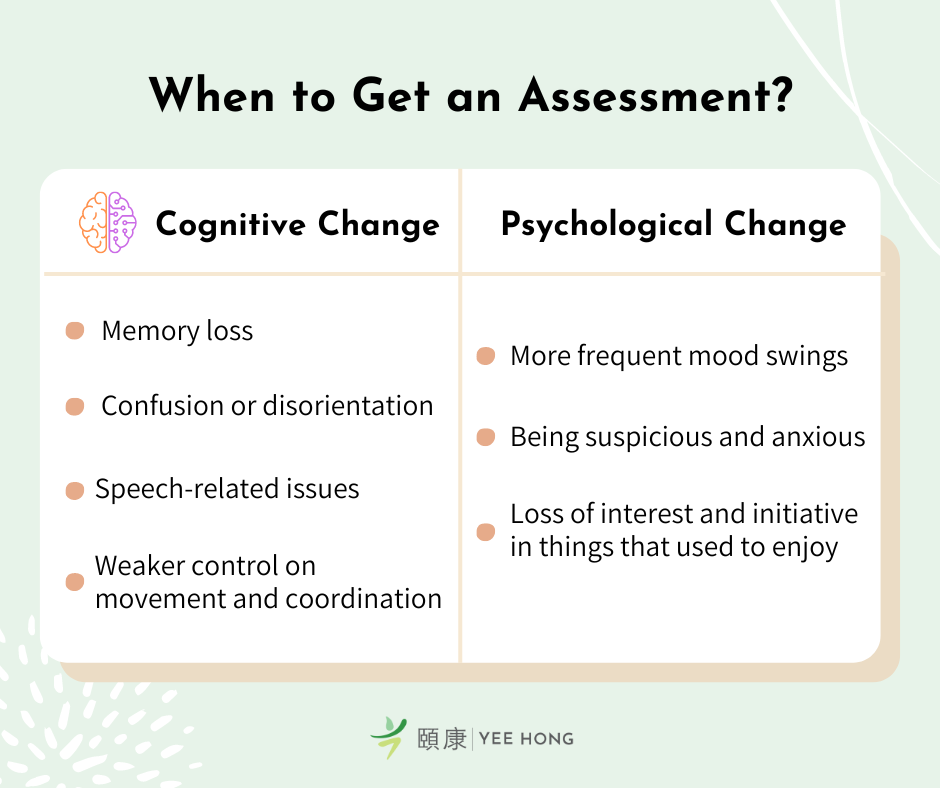
Cognitive Changes
- Memory loss that affects daily living
- Confusion or disorientation in a familiar setting
- Speech-related issues or declining language skills
- Difficulty performing activities of daily living (e.g., dressing, cooking, cleaning, managing finances)
- Declining motor control and coordination (e.g., losing balance more frequently)
Psychological Changes
- Experiencing more frequent mood swings, for no apparent reason
- Loss of interest and motivation for activities you previously enjoyed
- Being suspicious and feeling anxious
- Engaging in repetitive behaviour (e.g., repeatedly asking the same question)
*Dementia symptoms can vary
case by case.
These resources are meant to help you recognize the warning signs of dementia so that you can be aware of its symptoms and seek early diagnosis and intervention. If you have any concerns or questions about your health, please consult with a family doctor, primary care provider, or geriatrician for further assessment or referrals.
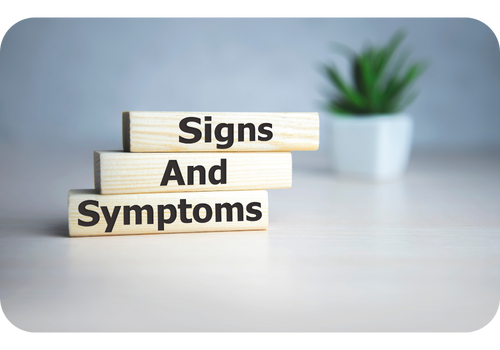
*Dementia symptoms can vary
case by case.
These resources are meant to help you recognize the warning signs of dementia so that you can be aware of its symptoms and seek early diagnosis and intervention. If you have any concerns or questions about your health, please consult with a family doctor, primary care provider, or geriatrician for further assessment or referrals.
How to Get an Assessment?
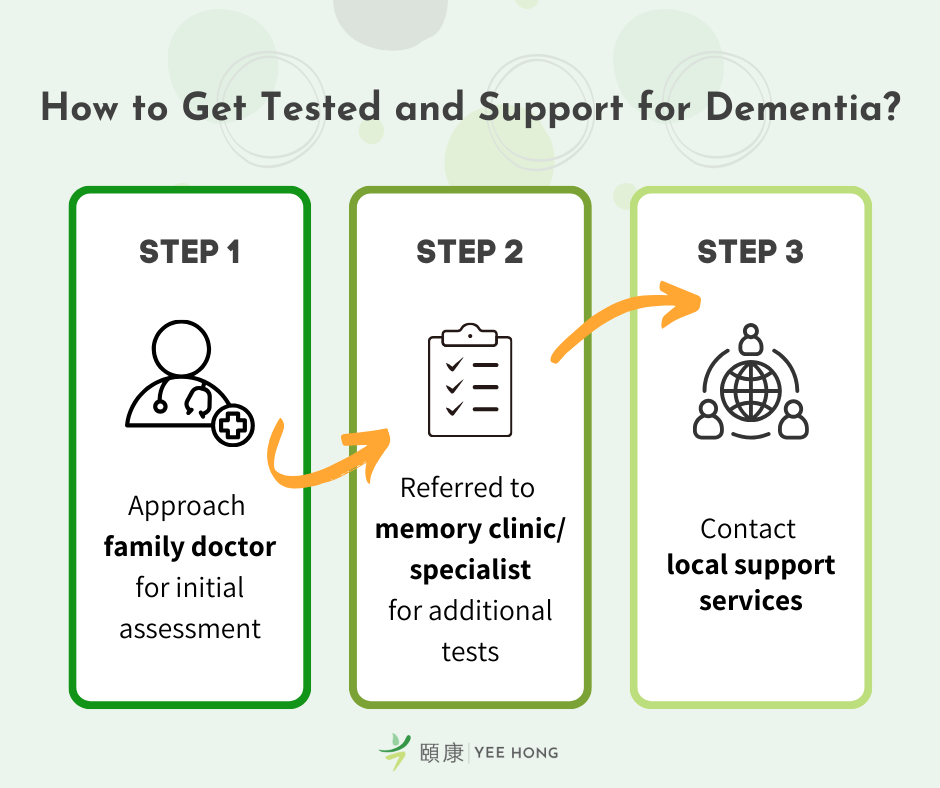
If you or your loved ones exhibit symptoms of dementia, speak with your family about an assessment and more information.[3] [4]
Depending on your initial assessment, your family doctor may refer you for further assessments using different methods and tools that are specific to dementia. Some examples include:
- Laboratory tests (e.g., blood tests)
- Physical exams
- Cognitive tests (e.g., Mini-Mental State Exam)
- Brain imaging scans
How to Get a Diagnosis
There is no single test that can definitively diagnose dementia. Rather, a diagnosis is typically made through a systematic evaluation that rules out other potential causes.
The diagnosis process can take time and may involve consultation with various healthcare professionals, such as a geriatrician, nurse, psychologist, neurologist, social worker, or occupational therapist.
These experts will evaluate the individual’s memory, reasoning ability, language skills, judgment, and overall day-to-day functioning to determine the most appropriate diagnosis.
Below are some tests and tools that may be used to diagnose dementia[5].
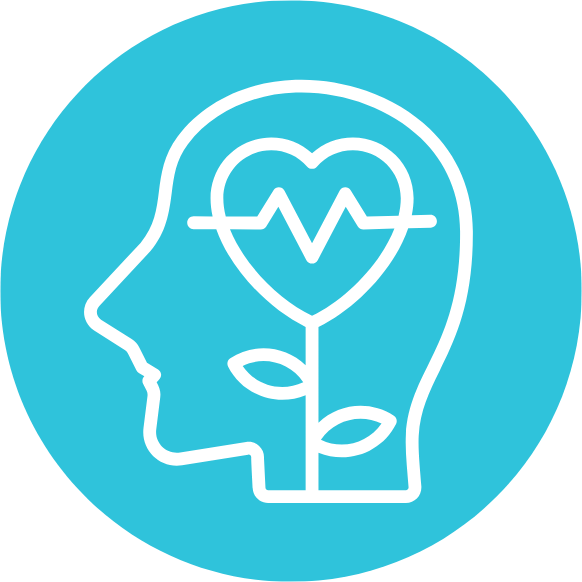
Mental Status Exam
- These evaluate and measure your cognitive abilities, such as memory, orientation, reasoning and judgment, language skills, and attention. The Mini-Mental State Exam (MMSE)[6] is a notable mental status exam used to support dementia diagnoses.
- The MMSE is 30-point assessment that evaluates five cognitive function areas. It involves tasks like recalling words and objects, copying a drawing, and responding to questions such as “ What year is it? ” and “ Where are we now? ”
- It is important to note that a low MMSE score does not necessarily mean an individual has dementia or Alzheimer’s.[7]
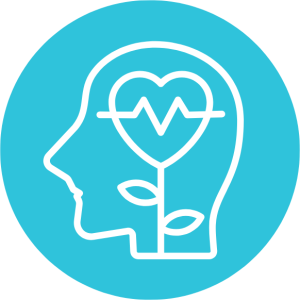
Mental Status Exam
- These evaluate and measure your cognitive abilities, such as memory, orientation, reasoning and judgment, language skills, and attention. The Mini-Mental State Exam (MMSE)[6] is a notable mental status exam used to support dementia diagnoses.
- The MMSE is 30-point assessment that evaluates five cognitive function areas. It involves tasks like recalling words and objects, copying a drawing, and responding to questions such as “ What year is it? ” and “ Where are we now? ”
- It is important to note that a low MMSE score does not necessarily mean an individual has dementia or Alzheimer’s.[7]
Medical History
Your healthcare provider will ask questions about the symptoms you are experiencing now and in the past. They will also ask about past illnesses, as well as any history of medical or psychiatric conditions in your family.
Physical exams
To evaluate whether other health conditions or nervous system disorders may be causing the symptoms, your healthcare provider will check for heart, lung, liver, kidney or thyroid problems, as well as test muscle tone and strength, coordination, eye movement, speech and sensation.
Brain scans
CT scans or MRIs may be used to check for stroke, internal bleeding, tumors or hydrocephalus (build-up of fluid in the brain). PET scans may be used to track brain activity and determine whether the amyloid or tau protein, hallmarks of Alzheimer’s disease, has been deposited in the brain.
Laboratory tests
Detailed blood work may be ordered to help detect problems that can affect brain function, such as anemia, diabetes, vitamin B-12 deficiency, or an underactive thyroid gland. Spinal fluid may be examined for infection, inflammation, or markers of degenerative diseases.
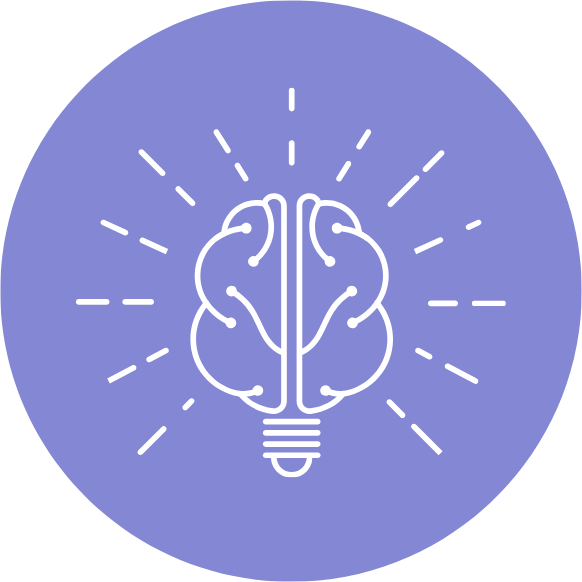
Psychiatric and psychological evaluations
A mental health professional can determine whether depression or another mental health condition may be contributing to the symptoms.[8]

Other tests
such as X-rays and electroencephalograms (EEGs) may be used to help determine the source of the problem.
Learn more about dementia diagnoses
- Alzheimer’s Association: Alzheimer’s disease and other forms of dementia – Getting a Diagnosis Toolkit
- Alzheimer’s Association: Alzheimer’s disease – Getting a Diagnosis
- iGeriCare: How is Dementia Diagnosed? (video)
- Therese Pei Fong Chow Research Centre for Prevention of Dementia: How to assess and diagnose dementia (Chinese)

How to Find Help and Resources
If you or your loved ones are diagnosed with dementia, your local Alzheimer Society is a great community resource. Through Alzheimer Society, you can access dementia supports and information such as training programs, day programs, and caregiver support.
Your local community centre may also provide additional supports. Some community centres may help you complete an interRAI Community Health Assessment (CHA).

How to Find Help and Resources
If you or your loved ones are diagnosed with dementia, your local Alzheimer Society is a great community resource. Through Alzheimer Society, you can access dementia supports and information such as training programs, day programs, and caregiver support.
Your local community centre may also provide additional supports. Some community centres may help you complete an interRAI Community Health Assessment (CHA).
References
[1] Mayo Clinic. (2023). Dementia-Symptoms and Causes
https://www.mayoclinic.org/diseases-conditions/dementia/symptoms-causes/syc-20352013
[2] Harvard Health Publishing. (2014). Should you be tested for Dementia. https://www.health.harvard.edu/mind-and-mood/should-you-be-tested-for-dementia
[3] Alzheimer Society of Canada. (n.d.). How to get tested for dementia: Tips for individuals, families and friends. https://alzheimer.ca/en/about-dementia/do-i-have-dementia/how-get-tested-dementia-tips-individuals-families-friends
[4] Alzheimer Society of Canada. (n.d.).First steps for families after diagnosis. https://alzheimer.ca/en/help-support/i-have-friend-or-family-member-who-lives-dementia/first-steps-families-after-diagnosis
[5] Alzheimer’s Association. (2019). Getting a Diagnosis. https://alzheimer.ca/en/document/954.
[6] Cockrell, J. R., & Folstein, M. F. (2002). Mini-mental state examination. Principles and practice of geriatric psychiatry, 140-141.
[7] Dementia Care Central. (2022). Mini-Mental State Exam (MMSE) Alzheimer’s / Dementia Test: Administration, Accuracy and Scoring. https://www.dementiacarecentral.com/mini-mental-state-exam/
[8] Dementia – Diagnosis and treatment – Mayo Clinic. (2022, October 12). https://www.mayoclinic.org/diseases-conditions/dementia/diagnosis-treatment/drc-20352019
[9] Hogeveen, S. E., Chen, J., & Hirdes, J. P. (2017). Evaluation of data quality of interRAI assessments in home and community care. BMC Medical Informatics and Decision Making, 17(1), 150–150. https://doi.org/10.1186/s12911-017-0547-9
